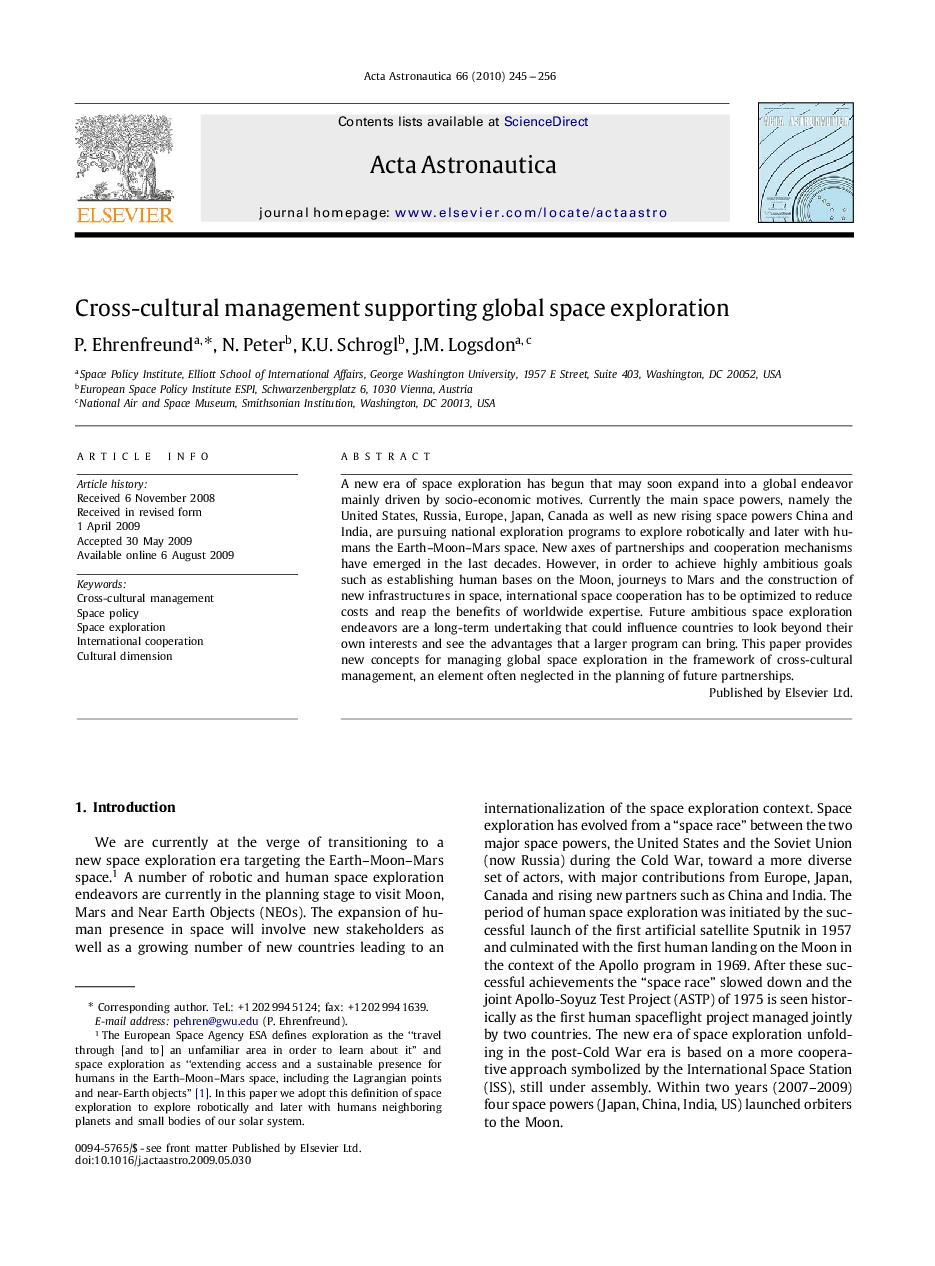| Article ID | Journal | Published Year | Pages | File Type |
|---|---|---|---|---|
| 1716557 | Acta Astronautica | 2010 | 12 Pages |
A new era of space exploration has begun that may soon expand into a global endeavor mainly driven by socio-economic motives. Currently the main space powers, namely the United States, Russia, Europe, Japan, Canada as well as new rising space powers China and India, are pursuing national exploration programs to explore robotically and later with humans the Earth–Moon–Mars space. New axes of partnerships and cooperation mechanisms have emerged in the last decades. However, in order to achieve highly ambitious goals such as establishing human bases on the Moon, journeys to Mars and the construction of new infrastructures in space, international space cooperation has to be optimized to reduce costs and reap the benefits of worldwide expertise. Future ambitious space exploration endeavors are a long-term undertaking that could influence countries to look beyond their own interests and see the advantages that a larger program can bring. This paper provides new concepts for managing global space exploration in the framework of cross-cultural management, an element often neglected in the planning of future partnerships.
